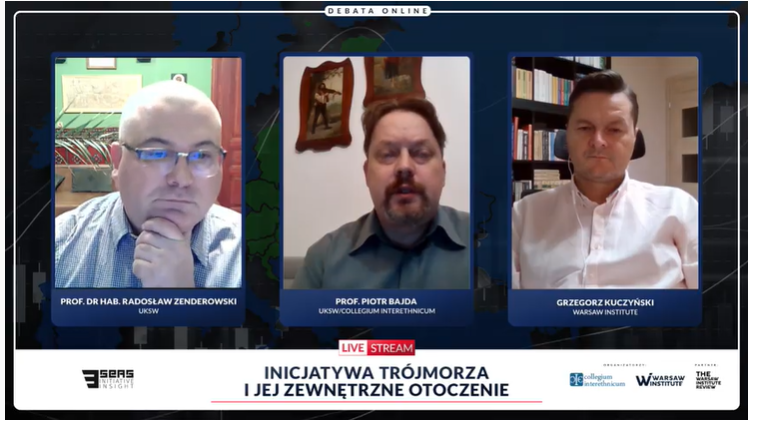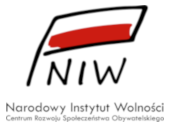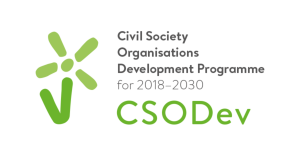NEWS
Date: 4 December 2020
The Three Seas Initiative and its external environment | Summary of the debate
On Thursday, December 3, 2020, the Warsaw Institute and The Warsaw Institute Review, in cooperation with Collegium Interethnicum, organized an online debate entitled “The Three Seas Initiative and its external environment.” The starting point for the discussion was the report devoted to this initiative by Piotr Bajda (PhD), one of the speakers.
The Three Seas Initiative (3SI) is one of the most ambitious and dynamically developing geopolitical programs of our time in Europe. The project connects 12 countries located between the Adriatic, Baltic and Black Sea, which together account for 29% of the area and 25% of the population of the European Union and generate almost 20% of its GDP.
Experts summarized the hitherto achievements related to the Three Seas Initiative, considered possible scenarios for further development and outlined the current activities of the countries involved as well as external actors. As an introduction to the discussion, Prof. Radosław Zenderowski presented the main theses of the Mr. Bajda’s report – namely, that the member states, referred to as “New Europe”, have now matured to being EU’s integral rather than a marginal part, and that its form and goals were shaped naturally, without the interference of external actors.
According to Mr. Bajda, the proof of the growing importance of 3SI is its use as an internal policy tool, which was initiated by the President of Estonia, who is currently seeking re-election. On the other hand, the current president of Croatia also used the Initiative in his election campaign, but in a different context, presenting it as a project with almost no prospects. In a way, however, it underlines its importance and proves the dissemination of the 3SI concept in the public consciousness to the extent that it is used as an argument in domestic politics, even in a negative way. The practical dimension of the body is underlined by the increasing number of ministerial debates, and the political dimension taking the role of presidential patronage.

Grzegorz Kuczyński, an expert of the Warsaw Institute, emphasized that Poland plays an important role in the development of 3SI, however, cooperation with external actors such as the United States will be necessary. He also noted that due to the significant socio-cultural diversity of the 3SI member countries, it is almost impossible to maintain a stable common policy. Therefore, the development of transport infrastructure (the so-called “north-south corridor”) is of key importance, as all member states will benefit from it, regardless of the current political turmoil in individual countries. The thesis that the main goal of 3SI is to benefit infrastructure and economics should be pushed forward, without a broader geopolitical aspect and without expressing pro-Western or pro-Russian inclinations. The development of infrastructure would make Europe more independent of the East, thus increasing energy and national security.
In the second part of the debate, there was a Q&A session dedicated to questions from the viewers. The experts were asked, inter alia, about the perception of the Three Seas Initiative by external actors, mainly the United States, Russia, and Germany. There were also questions about the position of 3SI in relation to other regional projects, such as the European Union or the Visegrad Group. The challenges faced by the actual implementation of projects under the 3SI and the tools that can be used to effectively encourage member countries to do so were also discussed.
We encourage you to watch the entire debate available on our YouTube channel.
Speakers:
- Piotr Bajda, (PhD) – political scientist, academic lecturer at Cardinal Stefan Wyszyński University in Warsaw, co-founder of the Collegium Interethnicum Foundation and former deputy director of the Polish Institute in Bratislava, was a representative of the International Visegrad Fund for Poland. He worked, among others at the Institute of Political Studies of the Polish Academy of Sciences, in the Center for Eastern Studies, he organized the Warsaw office of the Polish-American-Ukrainian Cooperation Initiative (PAUCI).
- Grzegorz Kuczyński – director of the Eurasia program at the Warsaw Institute and expert on eastern issues. Author of many books and publications on the backstage of Russian domestic and foreign policy.
The host of the meeting was Professor Radosław Zenderowski – a political scientist and sociologist, academic lecturer, former president of the Polish Society of Political Sciences – Warsaw Branch, director of the Institute of Political Sciences and Administration of the Cardinal Stefan Wyszyński University in Warsaw.
The event was organized as part of the 3 Seas Initiative Insight project carried out by the Collegium Interethnicum Foundation.


The task was financed from funds obtained from The National Institute of Freedom under the Program for the Development of Civic Organizations for 2018-2030.
The concept of analytical material was created thanks to co-financing from the Civil Society Organisations Development Programme 2019.
Selected activities of our institution are supported in cooperation with The National Freedom Institute – Centre for Civil Society Development.
All texts published by the Warsaw Institute Foundation may be disseminated on the condition that their origin is credited. Images may not be used without permission.


















